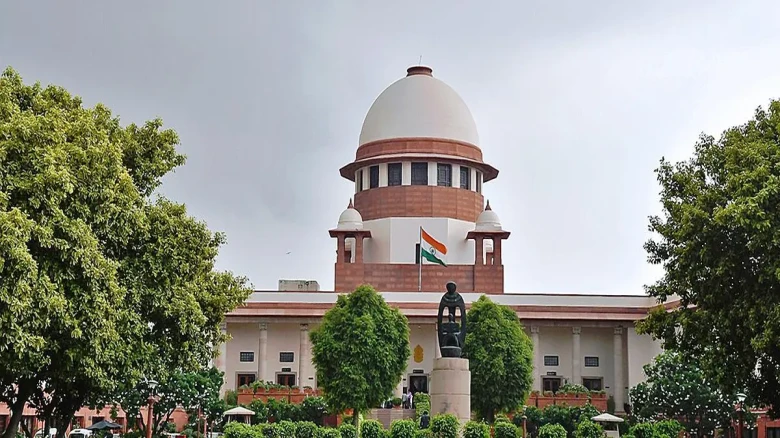The Supreme Court ruled that bribery and corruption among lawmakers undermine the effectiveness of India's parliamentary democracy.
Digital Desk: An MLA or MP cannot assert immunity from prosecution on an allegation of bribery related to a vote or statement in the Parliament or Legislative Assembly, according to a ruling made on Monday by a seven-judge Constitution Bench of the Supreme Court. The Constitution Bench of the Supreme Court unanimously overturned the 1998 ruling in the PV Narasimha Rao case.
"We are not in agreement with the ruling in the PV Narasimha case, which shields lawmakers from being held accountable for alleged bribery for casting a vote or making a speech in the House that has broad implications," Chief Justice DY Chandrachud stated during the hearing.
The Supreme Court ruled that bribery and corruption among lawmakers undermine the effectiveness of India's parliamentary democracy. Citing Article 105 or 194, the bench led by the Chief Justice stated that the bribery is not immune.
"A member indulging in bribery indulges in a criminal act which is not essential for casting a vote or giving a speech in the legislature," the CJI ruled.
The Supreme Court stated that Articles 105 and 194 of the Constitution are violated by the way the PV Narasimha ruling is interpreted. The court stated that the way the matter has been interpreted and the majority ruling in PV Narasimha Rao led to a paradoxical situation where a legislator receives immunity for accepting a bribe and then votes in the agreed-upon manner.
The CJI further stated that the interpretation of the PV Narasimha ruling conflicts with Articles 105 and 194. Chief Justice Chandrachud went on to say that accepting an illicit bribe crystallizes the offense; it doesn't matter if the vote or speech is delivered thereafter.
Speaking on the decision, Advocate Ashwini Upadhyay stated that the Supreme Court's ruling made it clear that if any legislator takes bribes to ask questions or cast votes in the legislature will not be immune to prosecution. He declared that the legislator in question would face corruption charges instead of any preferential treatment.
"The Supreme Court ruled that asking questions or casting votes by taking bribes will be equivalent to destroying India's parliamentary democracy," stated the lawyer.
After hearing the arguments, a seven-judge panel led by the Chief Justice of India in October reserved a decision. Justices AS Bopanna, MM Sundresh, PS Narasimha, JB Pardiwala, Sanjay Kumar, and Manoj Misra are additional justices on the bench.
A five-judge bench had previously noted that the problem was crucial and had a big impact on the morals of politics, thus it was referred to a bigger bench of seven judges to address.
The court stated that the goal of Articles 105(2) and 194(2) is to guarantee that legislators in state legislatures and the parliament can carry out their duties in a free and unrestricted manner without fear of consequences.

Leave A Comment